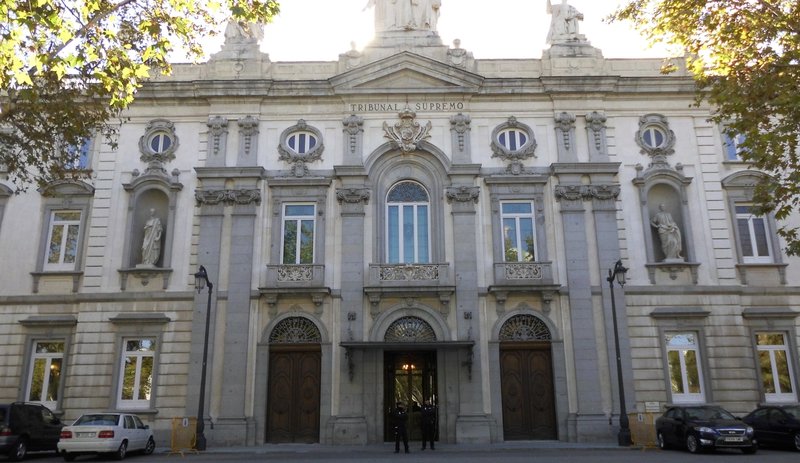EU slams state judiciary
Public lack of confidence in judicial system sees Spain fall to 26th position in EU ranking
State court cases are among the slowest in Europe with a poor rate of case resolution
The public perception of the independence of the judiciary in Spain is at the bottom of the EU league, with only the Bulgarians and the Slovaks having less trust in their judicial systems. This is one of the conclusions of a damning report made public in Brussels yesterday. The European Commission is also concerned about the poor efficiency of Spanish courts, which it considers too slow: “The processes become so long that the Spanish no longer have any confidence in their judicial system to deliver justice,” said the EU's Commissioner for Justice, Consumers and Gender Equality, the Czech Vêra Jourová, who is investigating the causes and will present specific reform measures in May.
The condemnation in the Brussels's report coincides with the judicial offensive by the PP government against Catalonia's sovereignty process, with such actions as suspending judge Santi Vidal for his part in drawing up a proposal for a Catalan constitution.
The public perception of Spanish judicial independence has fallen to recored lows, leaving Spain in 26th position in the European rankings, on the same level as Croatia, the newest EU member state. In other words, Spain is third bottom, dropping 10 places in three years (in 2012 it was number 16 with a score of four out of seven, which has now dropped to 3.2). Nor does Spain do well in the world ranking of 144 countries by the World Economic Forum, which places the country in 97th place.
Jourová admits having no “explanation” for this “lack of confidence” in the Spanish judicial system that “was already low, but has got even worse”. The EU commissioner also said that “in the next few months” she will look into the causes in detail.
Brussels criticised Spain last year and called for more transparency. “I am perfectly aware that it is not easy to put structural reform into practice, that it takes time to see results,” added Jourová.
The member states with the best scores in judicial independence are Finland, Denmark and Ireland. The report warns that an independent judiciary is not only a “requirement”, enshri-ned in article 47 of the Charter of Fundamental Rights of the European Union, but also “important for attracting investment,” said Jourová.
However, Spain's poor performance is not only a problem of independence but one of efficiency. The Spanish judiciary is above all slow, and is the fifth state needing the most time to resolve cases, and the fourth with the most open cases pending. Spanish courts take an average of 473 days to resolve civil or commercial litigation cases, with only Cyprus, Greece, Malta and Portugal doing worse.
The speediest justice system in the EU is Denmark's, while Luxembourg has the fewest pending open cases. In fact, Spanish courts are only capable of resolving 88% of the cases opened every year, the third worst rate in the EU. And the situation could be worse, as these figures do not take into consideration the funding cuts made in recent years.
Spain is also near the bottom in terms of the number of lawyers per
inhabitant, with 11 for every 100,000. Spain is also one of the lowest in terms of public spending on the judiciary.

